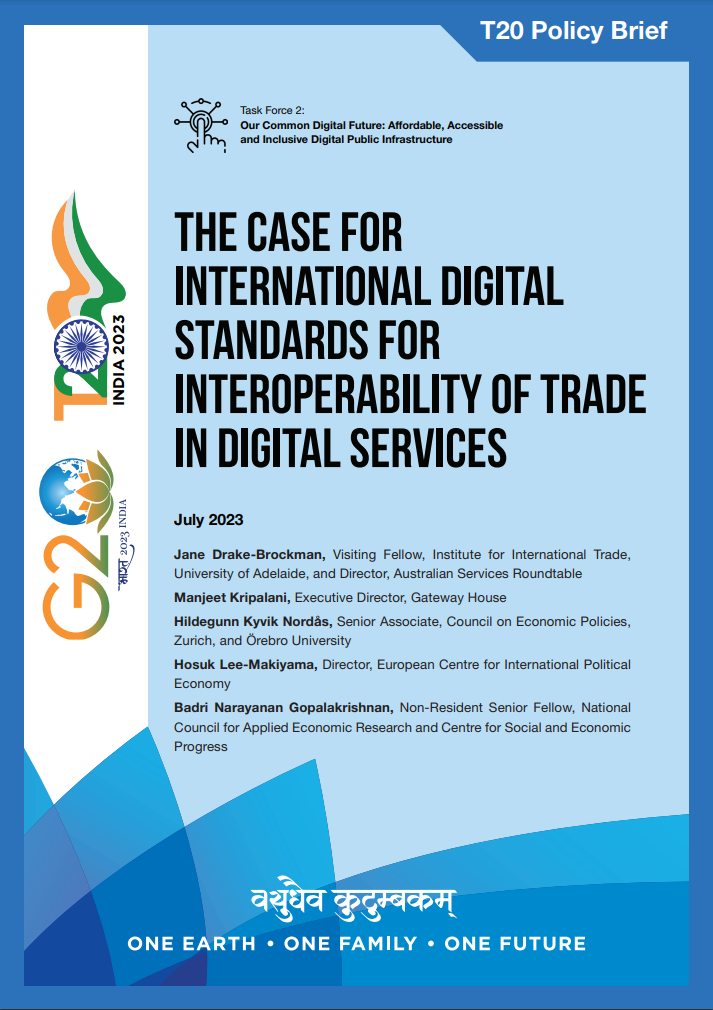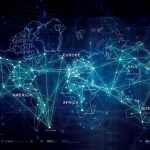The COVID-19 pandemic has been accompanied by a step change – digital services now account for the majority of global services trade. The provision of e-services, like cybersecurity, online banking, and smart personal assistants, relies on component parts and software that can “talk to each other”. Meanwhile, the exchange of data and information must also be protected.
Common digital standards facilitate interoperability. By doing so, they provide a shared launch pad for innovation, allow for the joint management of security risks, and create economies of scale by improving access to large and diverse markets. In end-to-end mobile networks, joint standardisation work through 3GPP has fostered an interoperable global ecosystem which underpins 4.7 percent of global GDP.
Contrary to these benefits, governments are retreating from international standards setting in favour of country- or region-specific approaches to technological regulation. This poses a threat to economic confidence, international market access and overall productivity growth. To take a well-known example, transatlantic discrepancies in data protection regimes have yielded legal recourse and years of uncertainty for businesses and other stakeholders. Were it not for a succession of temporary policy instruments, divergent regulation could have halted cross-border flows of personal information entirely.
From this standpoint, there is an urgent need for inclusive participation in international standards-setting on critical and emerging technologies in the digital domain. As data ownership and markets become increasingly important to product development, more needs to be done to define the concept of privacy as a legal right. Elsewhere, a regulatory and technical infrastructure that ensures end-to-end security of sensitive information is essential for expansive electronic networks.
It is nevertheless important that regulatory measures aimed at privacy, cybersecurity, or both, do not weaken the resilience of the internet by centralising management functions. A growing number of policy instruments are restricting web access; from shutdowns and firewalls to more nuanced interventions like “sending-party-pays” regimes. These measures undermine the internet as an open, globally connected, and trustworthy resource, and are fundamentally detrimental to the provision of digital services.
The ongoing development and proliferation of artificial intelligence (AI) only underscores the necessity of common digital standards. The relationship between AI and e services is multifaceted with data at its core. AI can improve digital services and make them more tradeable via tools like multilingual processing. Conversely, services and their associated data flows are important inputs for the development of AI-enabled applications that can improve welfare.
However, AI raises additional concerns in regard to safety, jobs, privacy, and infringement of intellectual property rights. Recent developments in generative AI, particularly large-scale language models such as GPT-4, have triggered a flurry of national regulatory initiatives and even a call for a pause from certain stakeholders. Well-proven policies are yet to be established in this area, which poses a unique opportunity for international collaboration on agile regulation.
Like with trade in goods, effective multilateral governance of digital services trade should be based on widespread policy commitments. Specifically, governments should agree to domestic regulatory transparency, non-discrimination, stakeholder consultation, use of international technical standards and conformity assessment procedures, as well as common principles regarding the use of AI. Public education and capacity-building can also be leveraged to provide practical guidance on the uptake of international norms and standards.
As trade governance moves away from the border in the context of concurrent global challenges, it is inevitable that policy makers will pursue their own regulatory initiatives. Nonetheless, it is imperative that the regulation of digital services is rooted in common standards to harness the benefits of technological interoperability. If nothing else, it will be those at the heart of the largest digital markets that dictate the course of the coming decades.

Hosuk Lee-Makiyama is the director of European Centre for International Political Economy (ECIPE) and a leading author on trade diplomacy, EU-Far East relations and the digital economy.
This article draws from a policy brief published by India’s G20 Presidency on International Digital Standards for Interoperability of Trade in Digital Services by the author Hosuk Lee-Makiyama and Jane Drake-Brockman, Manjeet Kripalani, Hildegunn Kyvik Nordås, Badri Narayanan Gopalakrishnan
Download the policy brief here.
This policy brief was first published by T20 India.


